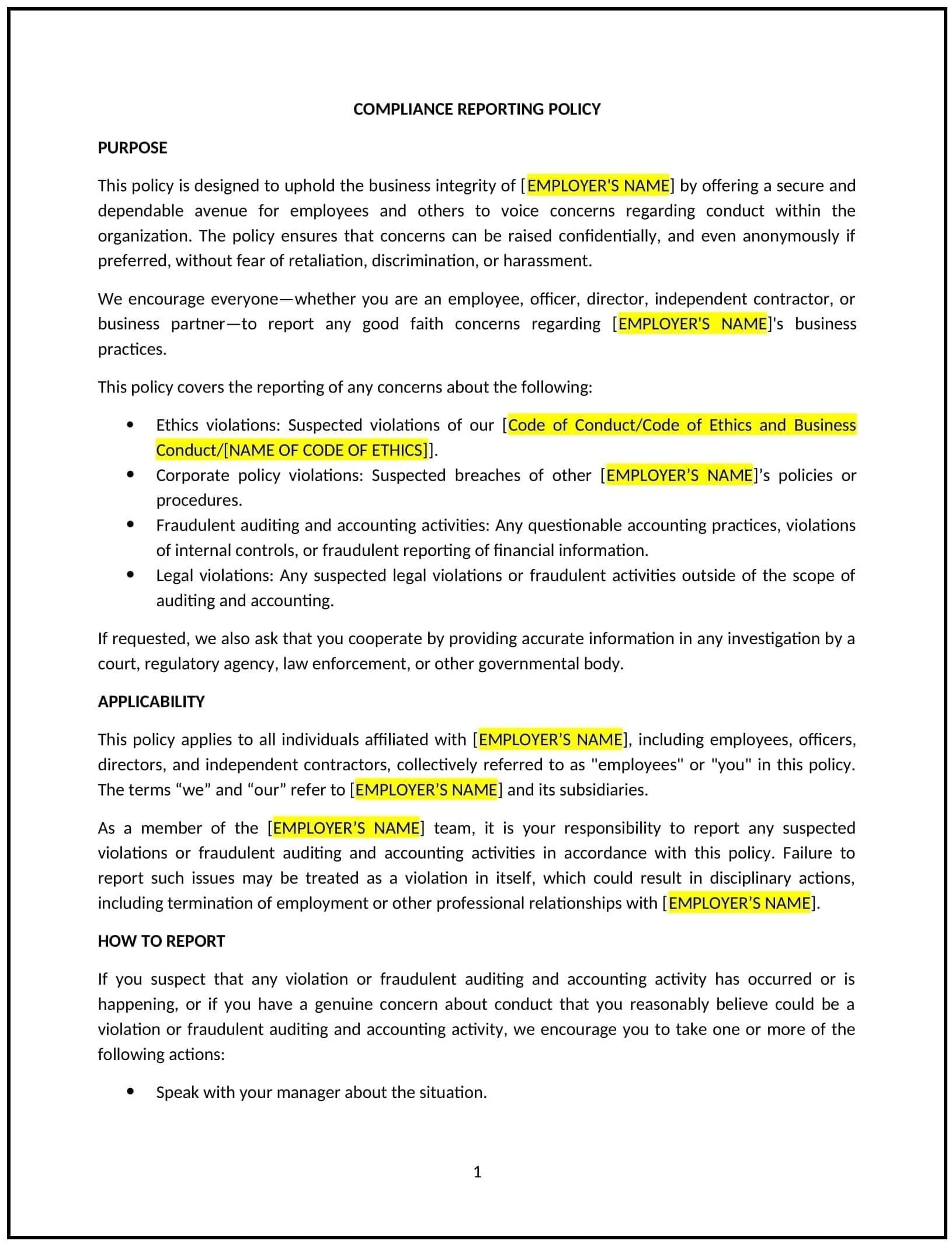Got contracts to review? While you're here for policies, let Cobrief make contract review effortless—start your free review now.

Customize this template for free
Compliance reporting policy (Utah)
This compliance reporting policy is designed to help Utah businesses establish procedures for employees to report potential violations of laws, regulations, or company policies. It outlines reporting channels, confidentiality measures, and protections against retaliation.
By adopting this policy, businesses can promote ethical behavior, address compliance issues proactively, and align with general best practices for corporate governance.
How to use this compliance reporting policy (Utah)
- Define reportable issues: Specify the types of violations employees should report, such as fraud, harassment, or safety concerns.
- Establish reporting channels: Provide multiple options for reporting, including anonymous hotlines or online platforms.
- Ensure confidentiality: Protect the identity of employees who report violations in good faith.
- Address retaliation: Prohibit retaliation against employees who report violations and outline consequences for retaliatory actions.
- Investigate reports: Outline procedures for investigating and resolving reported issues promptly and impartially.
- Train employees: Educate employees on the importance of reporting and the procedures for doing so.
- Review and update: Regularly assess the policy to ensure it aligns with legal requirements and business needs.
Benefits of using this compliance reporting policy (Utah)
This policy offers several advantages for Utah businesses:
- Promotes ethical behavior: Encourages employees to report violations and uphold company values.
- Reduces legal risks: Helps businesses address compliance issues proactively, minimizing potential penalties or lawsuits.
- Enhances transparency: Demonstrates a commitment to addressing concerns and maintaining accountability.
- Aligns with best practices: Provides a structured approach to managing compliance reporting and investigations.
- Builds trust: Encourages open communication and fosters a culture of integrity.
Tips for using this compliance reporting policy (Utah)
- Communicate the policy: Share the policy during onboarding and include it in the employee handbook.
- Provide training: Educate employees on the importance of reporting and the procedures for doing so.
- Monitor compliance: Regularly review reported issues and investigation outcomes to ensure adherence to the policy.
- Address retaliation: Take immediate action to address any instances of retaliation against employees who report violations.
- Update regularly: Assess the policy annually to ensure it aligns with legal requirements and business needs.